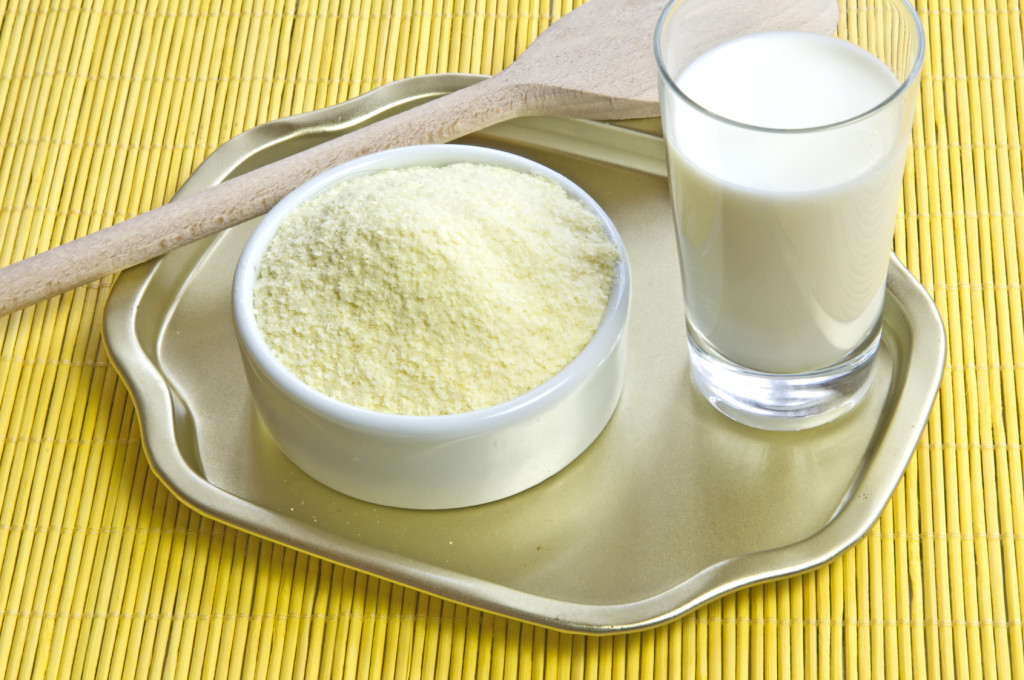 Powdered milk comes in a variety of forms, such as whole, buttermilk, non-fat and skim. It is a source of vitamins and minerals such as magnesium, calcium, zinc, potassium and phosphorous. Powdered milk is produced by extracting water and fat from fresh pasteurized milk, according to the Food Commodity Fact Sheet offered by U.S. Aid. During the water extraction process, beneficial nutrients such as amino acids are sustained.
Powdered milk comes in a variety of forms, such as whole, buttermilk, non-fat and skim. It is a source of vitamins and minerals such as magnesium, calcium, zinc, potassium and phosphorous. Powdered milk is produced by extracting water and fat from fresh pasteurized milk, according to the Food Commodity Fact Sheet offered by U.S. Aid. During the water extraction process, beneficial nutrients such as amino acids are sustained.Vitamins
- Powdered milk contains a host of vitamins such as A, D, E and K. According to the U.S. Dairy Export Council, vitamin A is beneficial for your immune system, reproductive system and vision and aids in cellular growth and differentiation. Vitamin D helps your intestines absorb phosphorous and calcium, which aids the bones, joints and heart. Vitamin E is a powerful antioxidant that protects lipoproteins and cell membranes as well as stimulating your body’s immune response to disease. Vitamin K is important for proper blood clotting.
Proteins and Amino Acids
- Liquid milk, from whence milk powder is derived, contains whey, casein and other proteins. Whey proteins include immonoglobulins, protease-peptones, alpha-lactoglobulin, beta-lactoglobulin and blood serum albumin fractions. Milk powder contains amino acids such as isoleucine, leucine, lysine, mehtionine, histidine, phenylalanine, valine, threonine and tryptophan, which are essential to good health and promote overall body functions. The U.S. Dairy Export Council reports that amino acids found in the proteins of milk powder are bioavailable and digestable.
Carbohydrates
- The most prevalent carbohydrate in milk powder is lactose. It also contains glucose, oligosaccharaides and galactose. The U.S. Dairy Export Council reports glucose and galactose form lactose that can benefit infants by preventing gastrointestinal disturbance and promoting lactic acid bacteria. Lactose can also benefit diabetic diets because it does not increase blood glucose levels and is digested more slowly than glucose and fructose. Lactose also helps your body to absorb calcium. If you are lactose intolerant or experience difficulties digesting liquid milk, you may also have difficulty digesting powdered milk, suggests U.S. Aid.
References
Source: Taylor, Kelly; “What Are the Benefits of Milk Powder?”, 28 Jan 2015, http://www.livestrong.com/article/316903-what-are-the-benefits-of-milk-powder/
